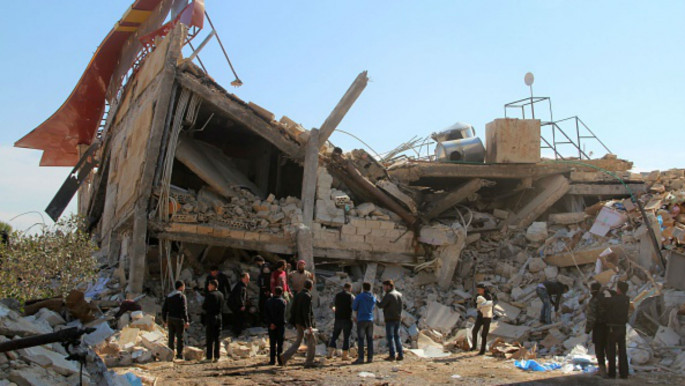Syria the world's most dangerous place for health workers
Syria was the most dangerous place for health care workers to operate last year, ahead of other conflict zones like the Palestinian territories, and Yemen, the World Health Organisation said Thursday.
For the first time, the United Nation health agency provided comprehensive statistics on attacks on health care facilities and other violence directed at health workers in major conflict areas over the past two years.
The findings were bleak: nearly 600 attacks directed at medical structures, personnel and ambulances were carried out across the 19 countries and territories included in the study in 2014 and 2015.
Almost 1,000 people, including health workers, patients and bystanders, were killed, the WHO report said.
"One of the most concerning findings is that two thirds (of the attacks) have been deliberate," Rick Brennan, WHO's chief of emergency risk management, told reporters.
Assaults intentionally targeting health care facilities, health workers, the sick and injured "represent gross violations of international humanitarian law," he said. "If proven (they) can be considered war crimes."
WHO chief Margaret Chan denounced the violence against people simply trying to save lives often in horrific circumstances.
"We need those facilities and we need those valuable human resources to help people from both sides," she told delegates attending WHO's main annual assembly this week.
'Slaughtered in their beds'
Syria, ravaged by a devastating five-year conflict, in 2015 counted 135 attacks on health facilities and workers, resulting in 173 deaths.
That is more than half of the 256 attacks registered across 19 conflict areas last year, which together left 434 people dead.
Joanna Liu, head of medical charity Doctors Without Borders, warned that "the act of providing healthcare itself is under attack".
 |
| In 2015 alone, 75 hospitals managed or supported by MSF were attacked [AFP] |
"From Yemen to Syria, from Central African Republic to Niger, health facilities are looted, burned and bombed," she told the WHO gathering.
"Patients are slaughtered in their beds. Health workers are abducted, assaulted and killed."
She said that last year alone, 75 hospitals managed or supported by the charity, which goes by its French acronym MSF, were attacked.
"Medicine should not be a deadly occupation," she said.
Other areas that are particularly dangerous for health workers include the Palestinian territories, where there were 34 attacks in 2015 that killed three people, Pakistan, with 16 attacks resulting in 45 deaths and Libya with 14 attacks that left 39 dead.
War-torn Yemen and Iraq also figured high on the list.
The WHO report said that 2014 was even deadlier on a global scale, with 525 people killed in 338 attacks.
Statistics for 2016 were not available, Brennan said, although he warned that the trend was continuing, with numerous attacks so far this year, including on hospitals in Syria.
![MSF hospital destroyed in Syria [AFP] MSF hospital destroyed in Syria [AFP]](/sites/default/files/styles/image_345x195/public/media/images/F603B969-0756-4C74-BD60-60D5C3612A26.jpg?h=d1cb525d&itok=oiKxewuK)



 Follow the Middle East's top stories in English at The New Arab on Google News
Follow the Middle East's top stories in English at The New Arab on Google News


